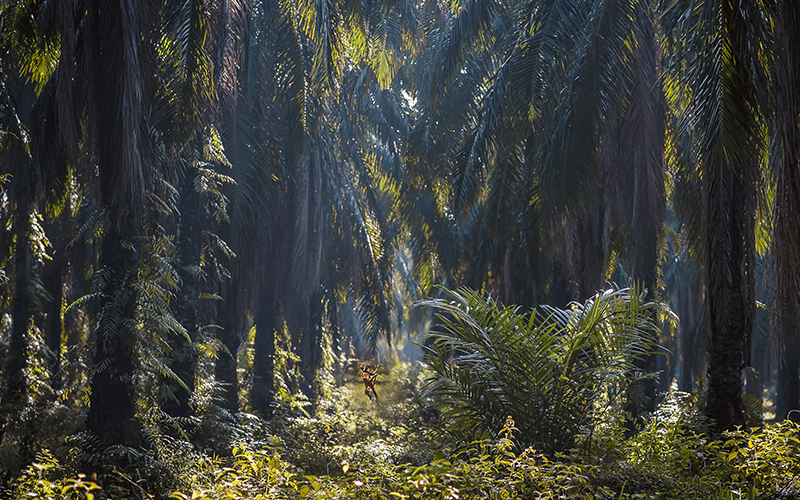Data-Driven Analysis of Palm Oil Provides a Cause for Optimism
MPOC welcomes the insightful analysis in Dr Hannah Ritchie's ground-breaking book, "Not the End of the World," which challenges widespread misinformation surrounding palm oil and offers a refreshing perspective.
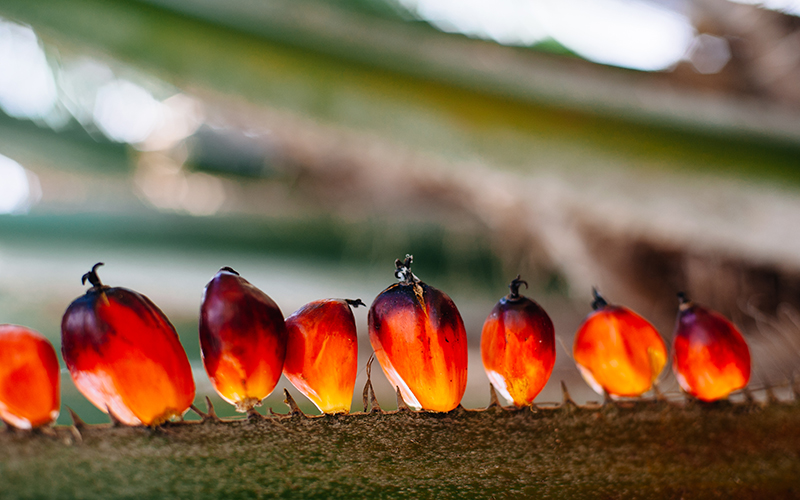
After decades of unrelenting bad news about the worsening state of the planet, renowned data scientist Dr Hannah Ritchie has written a book about why there is cause for optimism and how organisations such as MPOC have started turning the tide against, amongst other things, deforestation.
The Malaysian Palm Oil Council (MPOC) welcomes the insightful analysis in Dr Hannah Ritchie's ground-breaking book, "Not the End of the World." This meticulously researched volume challenges widespread misinformation surrounding palm oil, offering a refreshing perspective grounded in data and nuance.
For decades, palm oil has been unfairly vilified as the single biggest cause of deforestation and for the environmental harm it does. Dr Ritchie, a leading researcher and Deputy Editor at the University of Oxford's The World in Data website, meticulously dismantles this simplistic portrayal of this crucial crop. Her evidence-based approach reveals a truth that will come as a surprise to many.
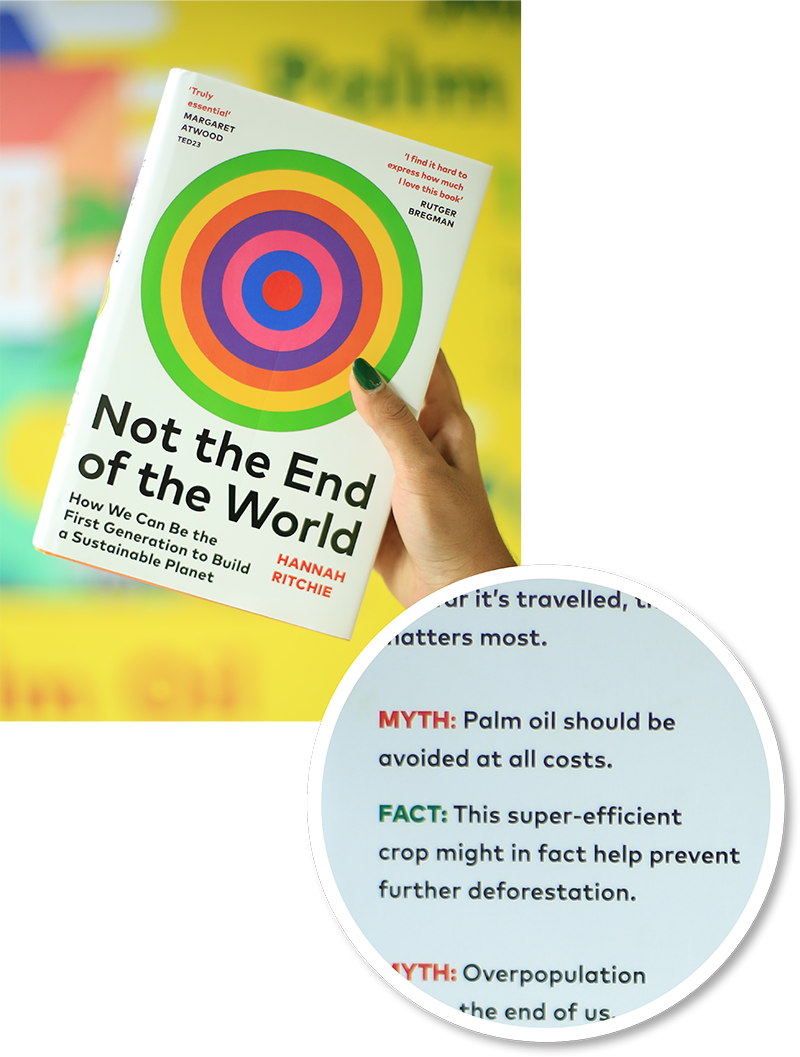
"Not The End of The World" does not entirely exonerate palm oil of its historical role in deforestation or infer that the industry gets everything right. However, it demonstrates that oil palms are not the worst culprit for deforestation; deforestation in oil palm-growing areas is falling, and oil palms are remarkably efficient in growing compared to alternative oils.
As demand for vegetable oils grows, oil palm's high yield per hectare potentially means less land needs to be used, offering hope for further forest conservation.
As Dr Ritchie points out, we use 322 million hectares (an area the size of India) to grow oil crops, but if we were to source all of it from oil palm, we would need just 77 million hectares - or four times less land. Yet if we got it all from soybean oil, we'd need more land: 490 million hectares; from olive oil, we'd need 660 million hectares, or the equivalent landmass of two Indias.
Beyond this, the book fosters a comprehensive discussion on how to deal with deforestation globally, looking at beef and soy in South America, crop yields in Sub-Saharan Africa and, of course, palm in Southeast Asia. There needs to be a broader conversation, moving beyond the singular focus on palm.

The initiatives employed by the Malaysian government and palm oil corporations are bearing fruit, with many operating under a commitment to No Deforestation, Peat and Exploitation (NDPE).
The book also debunks the dangers of knee-jerk reactions like boycotting palm oil. Replacing it with other oils would necessitate significantly more land, potentially exacerbating deforestation further. Instead, Dr Ritchie advocates for embracing certified sustainable palm oil (CSPO) to ensure responsible practices are embedded throughout the supply chain.
We applaud the release of Dr Ritchie's data-driven analysis, whose findings resonate deeply with our values. This book quashes the misleading narratives that palm oil is the pantomime villain of global agriculture. While there is still much work to be done, we have long championed transparency and sustainability, and we welcome this book as an opportunity for informed dialogue and collaboration to ensure a truly sustainable future for palm oil.
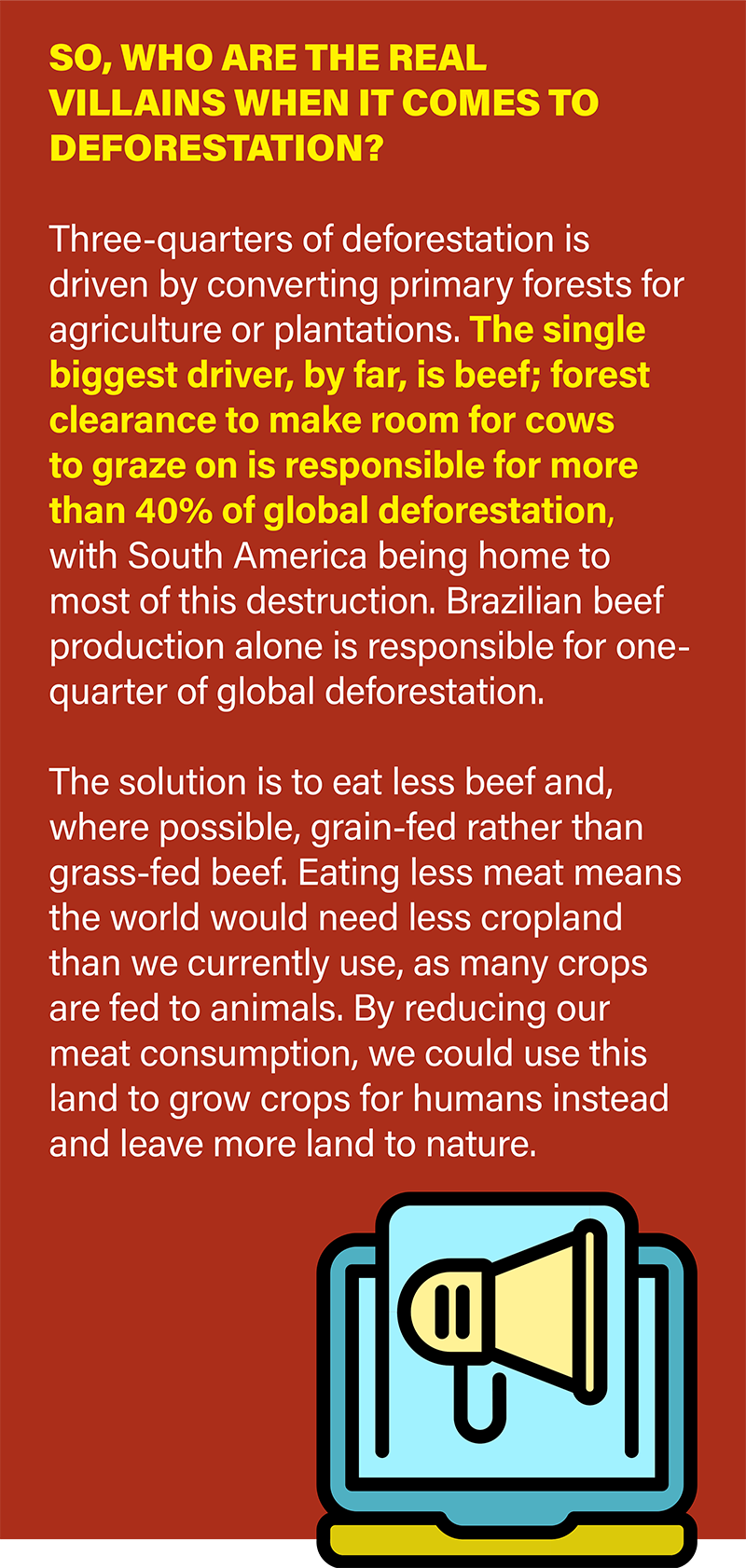
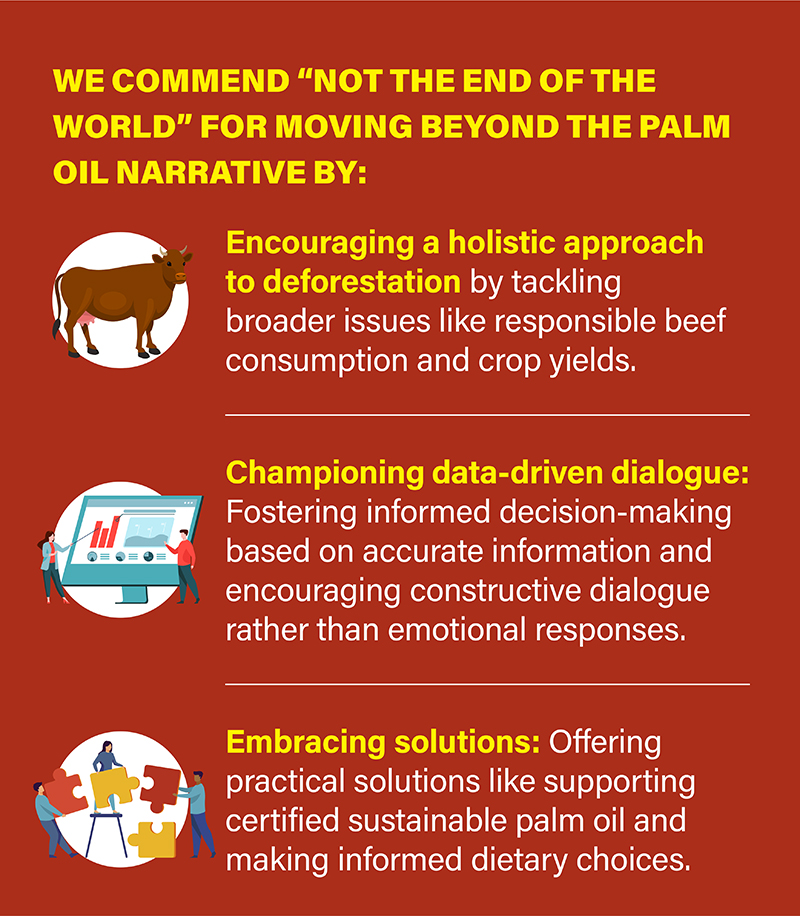
By fostering a deeper understanding of complex issues and advocating for responsible practices, "Not the End of the World" empowers stakeholders to contribute to a more sustainable future. MPOC and the palm oil industry remain committed to working with all stakeholders to ensure a responsible and sustainable palm oil industry that benefits both people and the planet.
By Belvinder Sron
CEO, Malaysian Palm Oil Council (MPOC)
